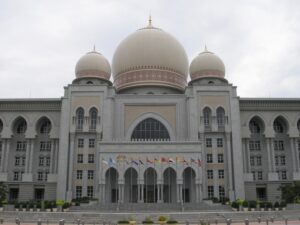The Pakatan Harapan government has promised to abolish certain “oppressive laws” in Malaysia. Among them are the Security Offences (Special Measures) Act 2012 (Sosma), Prevention of Terrorism Act, Prevention of Crime Act, and Sedition Act.
PH claims that these laws should be abolished or amended as they had been abused by the previous government leaders for their own political interest. It was further argued that these laws have provisions which can undermine the rule of law and the democratic process of our country, more so when there is no proper check and balance. In short, these laws are tools for oppression.
From an ordinary citizen’s point of view, the concerns raised by Pakatan are not far-fetched. To illustrate this point, let’s have a closer look at some of these laws, starting with the Sosma.
The main issue with Sosma is that there are provisions which deny an accused from having a fair trial, something which he would be entitled to, if he had been investigated and tried under the normal Criminal Procedure Code and Evidence Act. As an example, Sosma allows for a person to be detained for a “security offence” for up to 28 days during the investigation process. Under normal circumstances for non-security offences, a person can only be remanded no more than seven or 14 days depending on the nature of the offences. The long period of detention under Sosma can be abused to exert pressure on a suspect. In the UK, the Guilford Four and Maguire Seven cases of the 1970s are proof of how security laws can be abused, resulting in miscarriages of justice.
To compound the matter further, when a person is charged in court for a “security offence”, bail will not be allowed, unless the accused falls within the limited exceptional circumstances. Lest we forget, a person is innocent until proven otherwise, and the denial of bail arguably would amount to punishing the accused even before there is a conviction.
During the trial process. Sosma has provisions which are unfair against the accused. As an example, Sosma allows for a protected witness to give evidence in anonymity. The identity of such a witness will not be made known to the accused, unlike in a normal criminal trial. Worse. the accused is even barred from asking question which has the tendency to expose the identity of the said protected witness. This element of secrecy would allow the possibility of the prosecution planting an untruthful witness to testify against the accused.
Then we have the Sedition Act. We have witnessed how this Act has been used to silence and punish opposition politicians, activists, critics of the government, and prevent the public from having intellectual discourse on an issue. One must remember that for a country and its people to move forward, there must be exchange of ideas. Suppression of ideas and views, no matter how distasteful, will only retard our society. Contrary views from the public should be heard and can be useful for keeping our politicians in check. As such, the Sedition Act clearly has no relevance in this day and age.
The worst of the lot is probably the Prevention of Terrorism Act and Prevention of Crime Act which allows a person to be detained without any trial at all. The legislation allows the Executive to arrest and detain a person without trial when the Minister is satisfied that such detention is necessary in the interest of public order, public security or prevention of crime. This is is but a reincarnation of the hated Internal Security Act which was abolished.
All these laws mentioned, as well as others, which have been listed in Pakatan Harapan’s manifesto, are anathema to democracy. It is hoped that all the draconian laws and/or the provisions will either be abolished or amended to ensure that ours will be a nation that is truly governed by the rule of law. It is understandable that it may take more than 100 days before such laws can either be abolished or amended, but it is something that must be undertaken. In a democratic state, the greatest challenge is to balance the might of the state with the rights of citizens, and to surround both power and freedom with restraints. In New Malaysia, we hope that this just balance will finally be achieved.
Amer Hamzah Arshad is a criminal and civil ligation lawyer who is an advocate of human rights and the abolishment of the death penalty. He has served at the Bar Council Legal Aid Centre and was a member of its Criminal Law and Human Rights committees.
This article was published by The Star.



